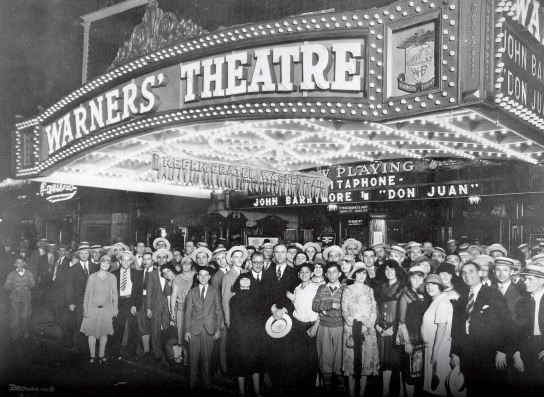
Kwon Do-hyung, the largest securities fraud in U.S. history
The SEC has charged Terraform Labs and Kwon with misleading investors about the stability of their so-called “algorithmic” stablecoin, Terra, and the use cases for the Terra blockchain. The SEC says Terraform Labs and Kwon committed one of the largest securities frauds in U.S. history. The value of Terra and Luna that disappeared overnight is estimated at $40 billion. The fines and penalties are also unprecedented. Terraform Labs agreed to pay approximately $4.4 billion, including a $400 million fine. Kwon agreed to pay $200 million, including an $80 million fine. Terraform Labs also agreed to stop selling virtual assets deemed to be securities, cease all operations, replace two directors, and distribute any remaining assets to investor victims and creditors through a liquidation plan.
“Holding them accountable and refunding hundreds of millions of dollars to harmed investors will be our top priority,” said SEC Attorney General Gurbir Grewal. “Despite the tremendous resistance these defendants have waged against us, I want to make it clear that our dedicated team will not rest until justice is done for the victims of this suffocating fraud.”

The U.S. Stock Market, 100 Years of History
Why does the United States deal with securities fraud so severely and quickly? To do so, we need to look at the financial history of the United States. The origin of the current New York Stock Exchange (NYSE) is the Buttonwood Agreement, in which 24 stock brokers operating in New York formed an alliance under a tree on Wall Street in 1794. In other words, the history of stock trading in the United States is almost identical to the history of the country. The U.S. stock market is a market that has been operated by self-regulation of stock brokers for over 100 years.
After World War I, in the 1920s, the United States enjoyed an unprecedented economic boom, known as the "Roaring 20s." Technological advancements such as mass production of automobiles, radio, and movies led to increased mass consumption and a boom in the economy, and the stock market soared. Americans who felt wealthy through stock investment enjoyed leisurely consumption, and culture, art, and fashion experienced a new turning point.
F. Scott Fitzgerald's 'The Great Gatsby', published in 1925, vividly depicts the luxury of the era with the lifestyle and splendid parties of the protagonist Gatsby. Fitzgerald published a collection of short stories, 'Tales of the Jazz Age' in 1922, and the expression 'Jazz Age', which describes the 1920s, also originates from here. Compared to Korea, which was under Japanese colonial rule in the 1920s, it was an unimaginably affluent environment. Until Monday, October 28, 1929.
Great Depression trauma, harsh punishment background
The 1929 Black Monday crash in the U.S. stock market is known to have started due to accumulated speculative overheating, panic among investors, and margin calls. Afterwards, the Great Depression, the most serious economic recession in U.S. history, began. It is the only event in economic history where the word panic is used. The miserable lives of American tenant farmers during the Great Depression are described in John Steinbeck's Grapes of Wrath, published in 1939. Grapes of Wrath, which contained social issues through the writing skills of a writer who started out as a journalist, won both the Pulitzer Prize and the Nobel Prize in Literature. It is considered one of the best works in American literature.
If the most important event in the Korean economy was the 1997 foreign exchange crisis, the most important event in the U.S. economy was the Great Depression. This is because most of the institutional reorganization of the U.S. financial system as we know it today was accomplished after the Great Depression. In particular, based on the judgment that fraud and bubbles in the stock market were caused by information gaps between investors and issuers, the Securities Act of 1933, which regulates the issuance of securities, and the Securities Exchange Act of 1934, which regulates securities transactions, were enacted. As part of the Securities Exchange Act, the Securities and Exchange Commission (SEC), which supervises securities transactions, were established. Terraform Labs and Kwon Do-hyung violated the Securities Act of 1933 and the Securities Exchange Act of 1934. Just as Korea is sensitive to foreign currency outflows and exchange rate fluctuations due to the trauma of the foreign exchange crisis, the U.S. also has trauma from the Great Depression. This is why the U.S. takes securities fraud more seriously than any other issue.
The agreement between the SEC and the defendant in the court contained an interesting phrase: "Pay a fine of $2.3 million (approximately 3.18274 billion won) from Kwon Do-hyung's account at Signum Bank in Switzerland." According to domestic media, Signum Bank is where Kwon Do-hyung sent approximately 9 billion won to a domestic law firm. It is ironic that the same money went to a domestic law firm to defend him and was also recovered for victims in the United States.
From Kwon Do-hyung's perspective, it must be unfair that his former business partners are living as coin tycoons in Korea, but how fortunate it is that financial judgment has been made in the United States.
No comments:
Post a Comment